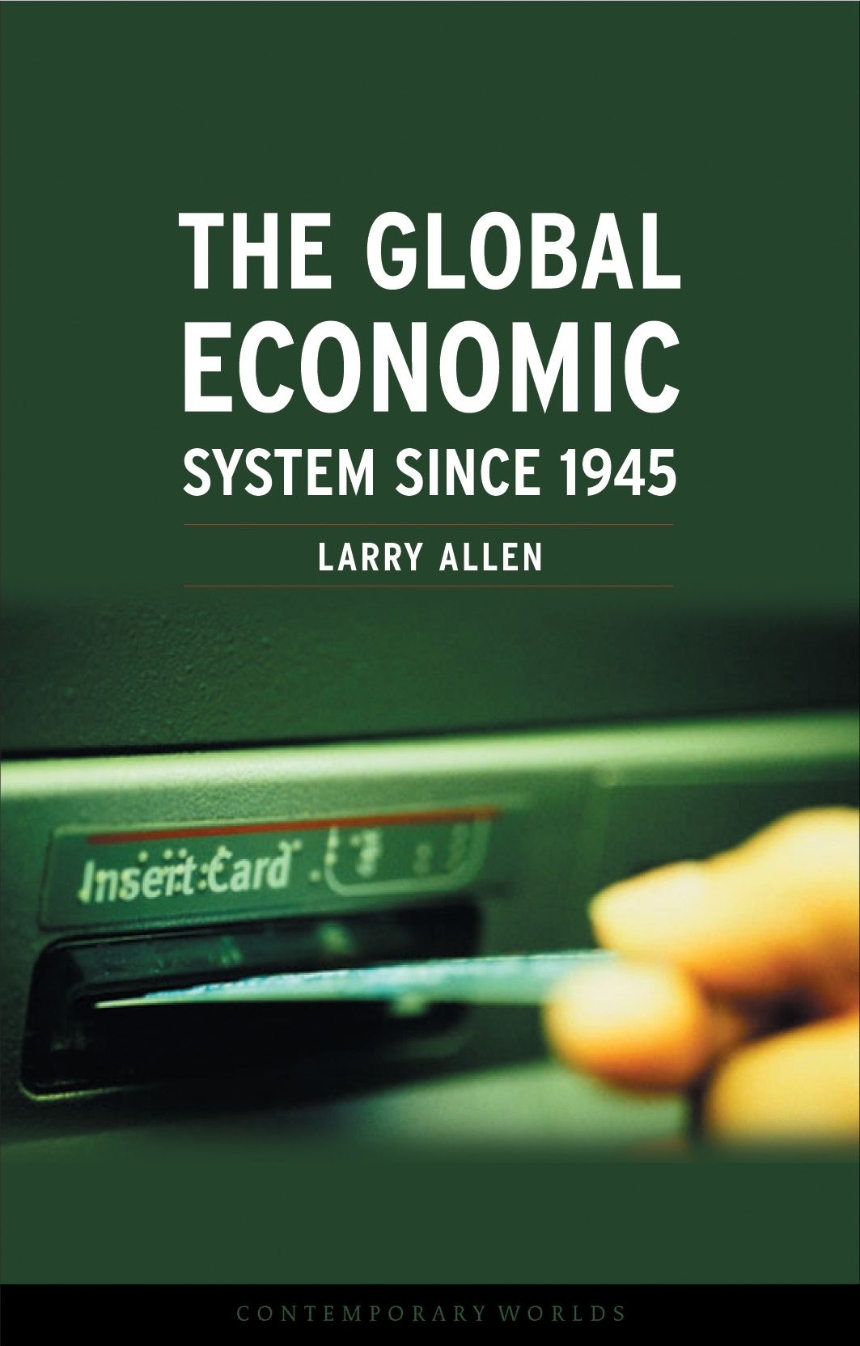Distributed for Reaktion Books
The Global Economic System since 1945
The strictly mathematical foundation of conventional economic theories has resulted in circumscribed analyses of world economic history. Larry Allen’s groundbreaking The Global Economic System since 1945, in contrast, re-evaluates world economic history in a context that recognizes and avoids the inherent limitations of mathematical models.
The Global Economic System since 1945 does not shun economic theory, but rather uses it as a tool to reassess recent world economic history. Allen describes how, starting at the end of World War Two, powerful corporations lobbied governments in an effort to reduce the perceived constraints of regulation. In the past twenty-five years these voices have grown increasingly influential, as governments worldwide adopted free-market policies, reduced economic regulation, and promoted the virtues of free-market capitalism.
The Global Economic System since 1945 presents a fresh and wide-ranging synthesis of economic history and theory that will be valuable to both scholars and curious participants in today’s global economy.
The Global Economic System since 1945 does not shun economic theory, but rather uses it as a tool to reassess recent world economic history. Allen describes how, starting at the end of World War Two, powerful corporations lobbied governments in an effort to reduce the perceived constraints of regulation. In the past twenty-five years these voices have grown increasingly influential, as governments worldwide adopted free-market policies, reduced economic regulation, and promoted the virtues of free-market capitalism.
The Global Economic System since 1945 presents a fresh and wide-ranging synthesis of economic history and theory that will be valuable to both scholars and curious participants in today’s global economy.
Distribution by the University of Chicago Press only to customers in the USA and Canada. Customers elsewhere should visit the UK website of Reaktion Books.
224 pages | 10 halftones | 5.42 x 8.5 | © 2005
Economics and Business: Business--Business Economics and Management Studies, Economics--Government Finance, Economics--International and Comparative
Reviews
Table of Contents
Preface
1. Introduction
2. A Global Postwar Economy Takes Shape
3. Prosperity Born of Depression
4. The Thesis and Antithesis of Capitalism
5. The Ebbtide of Postwar Prosperity
6. A Tug of War between Inflation and Economic Controls
7. The Political Pendulum Suddenly Swings
8. The Floodtide of the Capitalist Revolution
9. The Force of Speculation Enrolled in the Cause of Globalization
10. Global Confidence and Global Panic
References
Selected Further Reading
Index
1. Introduction
2. A Global Postwar Economy Takes Shape
3. Prosperity Born of Depression
4. The Thesis and Antithesis of Capitalism
5. The Ebbtide of Postwar Prosperity
6. A Tug of War between Inflation and Economic Controls
7. The Political Pendulum Suddenly Swings
8. The Floodtide of the Capitalist Revolution
9. The Force of Speculation Enrolled in the Cause of Globalization
10. Global Confidence and Global Panic
References
Selected Further Reading
Index

